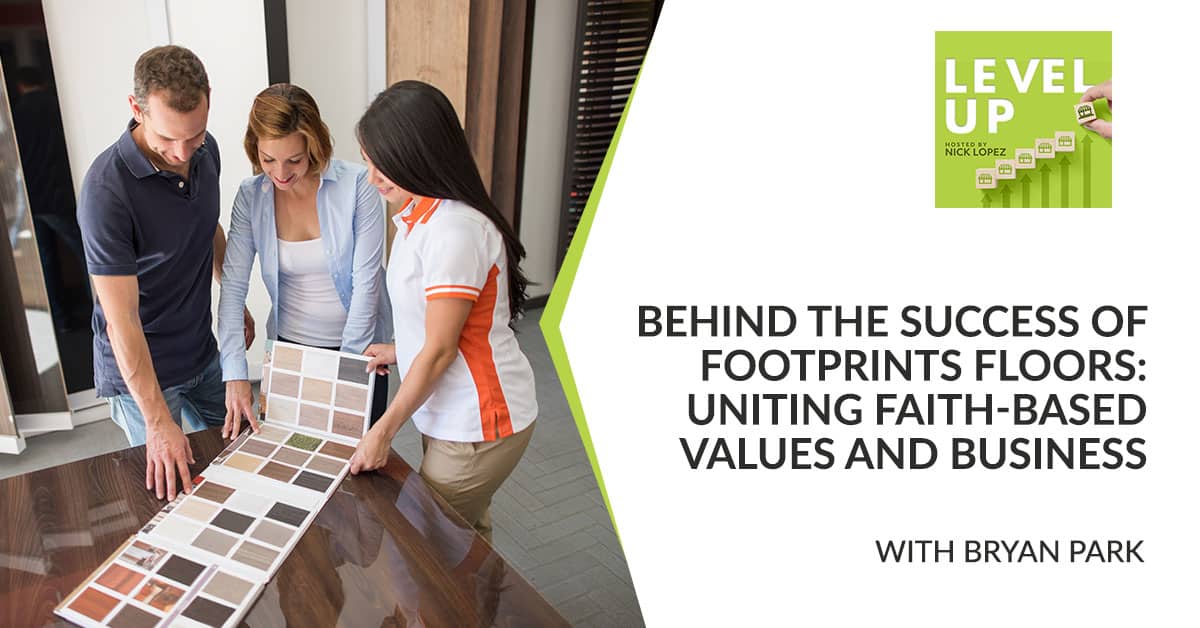
Bryan Park, the founder of Footprints sits down with Nick Lopez for this episode of the show. Bryan has always been driven by a passion to serve others. However, this has not stopped him from facing fear when it comes to making business decisions. To handle this, he focuses on facts, research, and analysis of past successes and failures. He knows that sometimes, you just have to take a leap of faith and trust the process. In times of uncertainty, he looks to his team for support and relies on their input to help make informed decisions. Footprints have faced significant plateaus while growing, particularly in the early days of the company. This was when the team was still figuring out how to scale and expand while maintaining their values and standards. To overcome these challenges, they leaned on their strong sense of purpose and kept their focus on delivering exceptional service and quality products to their customers. This dedication paid off as they found innovative solutions to help them scale, including opening a franchise program.
The Footprints team focuses on several important milestones including training, site selection, design, construction, and marketing support. They believe that proper training and education are key to ensuring success, which is why they invest heavily in their training programs. Footprints believe in involving its franchise owners in new implementations and the direction of the brand. They understand that a successful franchise system is one where franchisees are happy and invested in the brand. To ensure this, they regularly seek feedback from their franchise owners and involve them in strategic decision-making.
—
Watch the episode here
Listen to the podcast here
Behind The Success Of Footprints Floors: Uniting Faith-Based Values And Business With Bryan Park
Exploring The Behind-The-Scenes Challenges Of Growing A Faith-Based Franchise With CEO Bryan Park And Chief Development Officer
In this show, we have the absolute pleasure of learning from thought leaders and business, franchising, and high-performance personal development. Our guest in this episode most certainly goes without exception. He turned chaos in 2008 into opportunity by scaling a national flooring company to over 150 locations and growing. He’s the Founder and CEO of Footprints Floors International. Bryan Park, welcome to the show.
Thanks, Nick, for having me on here. It’s not quite international. Someday maybe. LLC is our official name but we’ll take it.
That’s a great clarification there. Nonetheless, a tremendous company and one that I admire. You’re right here in our backyard in Denver, Colorado, most certainly senior growth over the years. I have heard from a lot of folks in franchising, mutual connections, of the special things that you’re doing. I’m often pointed to network and catch up with you. It’s an honor that you’re on the show. Folks will most certainly level up from the conversation and specifically your experience. Without further ado, let’s jump in and get started. Bryan Park, Founder, CEO of Footprints Floors. How did franchising find you?
In my experience in the world, I’m sure there are some franchisors that were their plan, pushed into it, and made it happen, certainly found me or us. I was in the Air Force, got out of the military looking for a job, started installing sand, and finished hardwood floors for a living for a few years to feed my young family. I was married and starting to have kids. I had a mortgage and all kinds of that. I started installing floors. From there, I worked for a company for a few years.
In 2008, the recession hits. I started Footprints from there because I got to let go of that business. They stopped paying their employees so I had to start my thing. Footprints Floors started in December of ’08 in the middle of the recession. I had a 2-year-old, an 8-month pregnant wife, and an 800-square-foot house. I needed to figure it out. For the next handful of years, I grew the business in Denver. I was doing the floors myself, moved into managing the business, and brought on additional people.
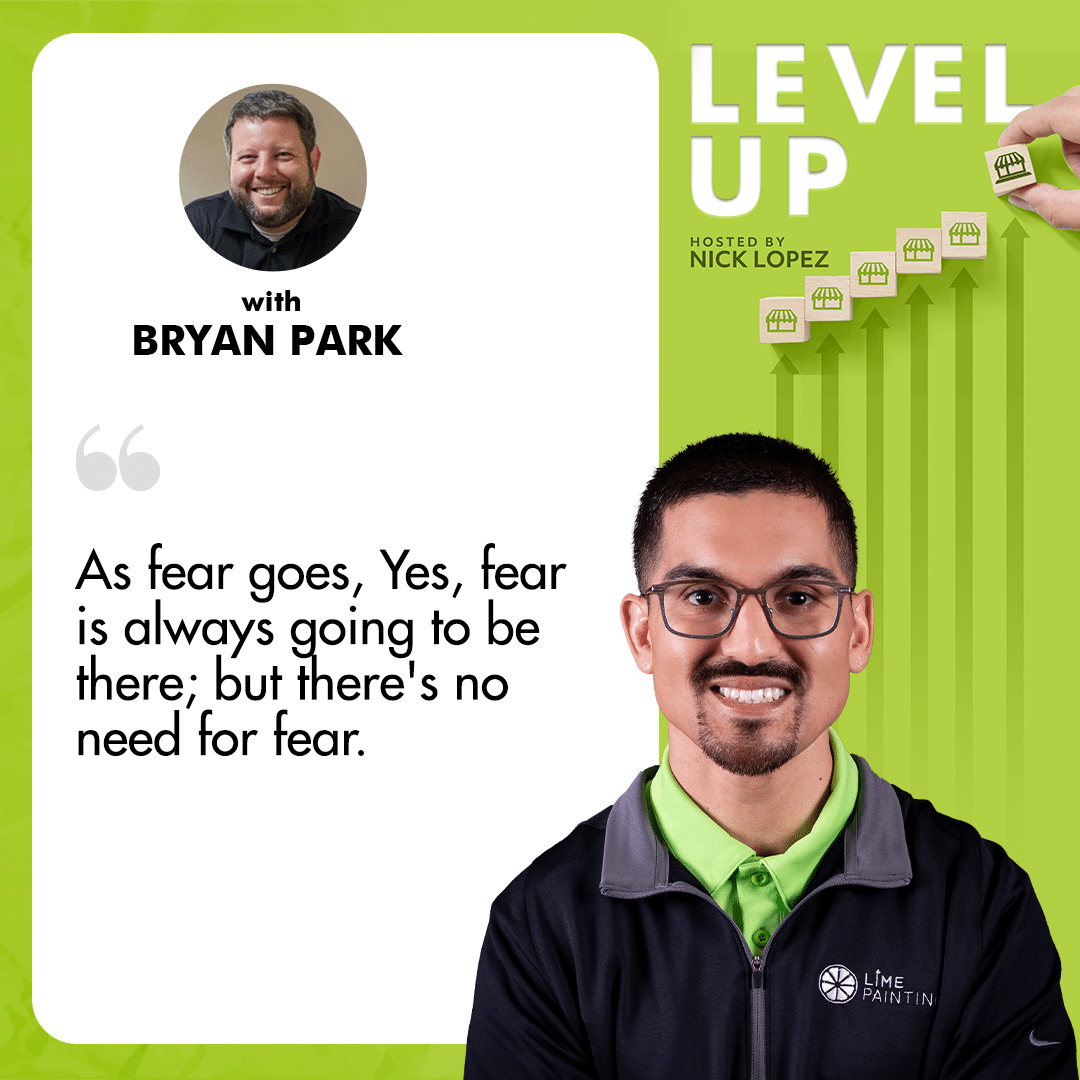
In 2013, we decided to move into franchising. It wasn’t so much a decision to move into. It was much more of a pull. It found us. I’d split Denver up into halves. I approached one of my crews and said, “I can’t drive to the North side of town anymore. It’s too much. Do you want to take the North side and I’ll take the South side? You send me back a percentage of what you book and sell. I’ll provide the marketing, answering your phones, and all that for you.”
The alternative would’ve been to turn him into an employee and then go that route. We didn’t want to go that route because worker’s comp is ridiculously expensive in construction. Maybe $100,000 a year for worker’s comp to turn that guy into an employee. We went this other route and got to the end of the year though. It worked great but our accountant said, “This is illegal. You can’t have him be 1099. He needs to be an employee and you got to pay worker’s comp or it looks like you’re running him as a franchisee.” I was like, “I don’t know what that even is.” I started researching what franchising was. Apparently, it’s not just McDonald’s. That was the beginning of our model.
I hired some guy off the internet for $2,500 to make our first FDD in agreement. Put that in perspective. Our current agreement is $300,000. The $2,500 version was what we call our Swiss Cheese FDD. It was a disaster. It was some boilerplate thing this guy had thrown together. I didn’t proofread it well. There were spots in the FDD that still referenced the window-washing company. I didn’t notice it and it was done. I’m giving it to my first franchisees and they’re like, “What’s this window-washing section?” I’m like, “Skip that paragraph.” Luckily, our first few franchisees were my buddies and these were guys that we were getting this document in place to govern the relationship. That was me getting pulled into franchising.
What an incredible story, serving in the US Air Force. Thanks so much for your service. My boys did a wrestling tournament down at the academy. It was pretty neat. It’s such a special place, the Air Force Academy down in Colorado Springs.
I enjoyed being there and learned a lot. It helps with running a business, that’s for sure.
One thing that you mentioned there, Bryan, was that you were laid off in the Great Recession. It’s part of your story, probably just so normal for you. Would you mind taking us back to 2008, 2009, the Great Recession, and the auto industry? There are a lot of corporate breed scandals going on. The stocks are plummeting. Real estate was the big bubble there. There’s most certainly a lot of narratives in that timeframe. You ended up starting a business. I want to go back there. I’m curious when it comes to fear, how do you make decisions?
Let’s use this as an example. Back in 2008 and 2009, you started a company. That was your response. It seems like a time full of fear. How did you make the decision to start a business? You started one from scratch, ma-and-pa style. Franchising is much different. You have all the answers, the blueprint, and the collaboration from the owners. Everything that you need to get into business, you’re doing it from scratch.
There’s a lot to unpack there but the short answer is my faith. Glory to God. That’s what carried us through those early days. Was there fear? Yeah. The beauty of faith is God is sovereign and there’s no reason to fear. That’s where our name comes from. Footprints Floors is a poem called Footprints in the Sand. It’s all about God carrying you even in the worst trials. He is carrying you. It was a trial but we persevered. My wife is amazing. Beyond my faith, it’s relying on my wife and our family. It was those early days. I was truly mom-and-pop out of my garage. We were walking neighborhoods and putting flyers on doors in December and January in Colorado.
My father-in-law was out there walking around in the dark, putting flyers on doors, and trying to drum up something because the world had shut down. Nobody was buying floors. Construction was especially hit. Nobody was moving. Everything was frozen up. The demand had dropped but supply hadn’t dropped yet. There were still a lot of flooring companies out there scraping for the little scraps that were on the table. A lot of them ended up going out of business. We launched right in the middle of that. It was by God’s grace. I heard years later somebody say that the Lord always pulls you into places he wants you to be. You don’t have to push your way in.
I’ve always looked back through the lens of my life going, “He does create paths and pulls you in where he wants you to be.” Our story is the Lord pulling us through. We see this as his business and we’re servants of his stewardship. It’s a biblical word. Be a steward of something. The Lord has put us in charge of his business. Fear is there and there is no need for that.
How am I getting into a conversation with you, Bryan? I can see why so many people are like, “Nick, you need to meet Bryan.” What a cool story. I love your immediate response there. It’s faith and beyond yourself. During those trials is when God is closest. Put it the way you did, he is ultimately getting you through it. You had mentioned something there pretty nuance but you don’t have to worry or have concern because you have faith in knowing that in this case, you’re being pulled into this path.
It sounds like there are some high performant components there. Meaning that it sounds like when you’re walking into the unknown, it’s important not to acknowledge or think about that unknown or at least put it front and center. I feel like there’s something there but ultimately your secret weapon is your faith allows you to remove that fear.
There’s a lot there. We could talk for hours about how my faith is intertwined in our business but I try not to make any decisions without prayer and the wise counsel of those that are around me. When we do enter into unknowns and decisions, whether it was back years ago or now, it’s staring at those unknowns and putting them through prayer and the lens of this wise counsel. Try to come to a place of, where should we be? Which direction should we go? Should we do it or not? Praying made clear to us. If you go through these exercises and you’re seeking God’s will and not your own, then fear is removed because if it’s his will then there’s no need for fear.
If he’s going to provide for the birds in the sky, they don’t wake up and say, “Is the sun coming up? Where am I going to get my seeds for the day?” They’re not worried about things. They’re provided. If God provides for the birds, he’s going to provide for you, his child. What authority though? You’re walking into your day with the full authority of your dominion, which is your business of which you’re called to steward. It’s so neat and such a grounded way to lead and steward your organization. I bet your franchise owners are in love and confident with leadership and direction, knowing that you’re grounded in the way that you make decisions. They’re not hasty decisions.
We’re going to get into how you include your franchise owners and everything else. I do want to move on here. I could only imagine that growing your organization over the past decade or so from the franchisee perspective at over 150 locations I would assume that you’ve hit some plateaus, Bryan. What were some of those major plateaus that you can think about? Ultimately, how did you navigate through them?
We’re in the middle of our first major franchising plateau. We had some plateaus in the early days before we started franchising, growing the business in Denver. From the day that we launched nationally back in June ‘19, we took off like a rocket ship. We went from 1 state to 40 and 8 territories to 170 in 2.5 to 3 years. We have plateaued a little bit in 2022 and part of it might be the economy and the natural progression of business. This is our current thought. We don’t have all the answers. We’re just trying to figure it out as we go here. I’m a floor guy that’s pretending to know what he’s doing here.
We grew so much. We have 83 franchisees and 60 something of them are all in their 1st or 2nd year. It’s a lot of figuring it out. We’ve done a good job but we’re at this place and part of the plateau is we’re wanting everybody to mature and use the word percolate where everybody needs to simmer a bit and cook, get experience, and become better at their jobs. That’s what we’re seeing. In some ways, it’s a natural plateau that we’re taking advantage of to develop our current franchisees. If it’s the Lord’s will to launch again, then we will skyrocket. If not, then we’re content with where we’re at.
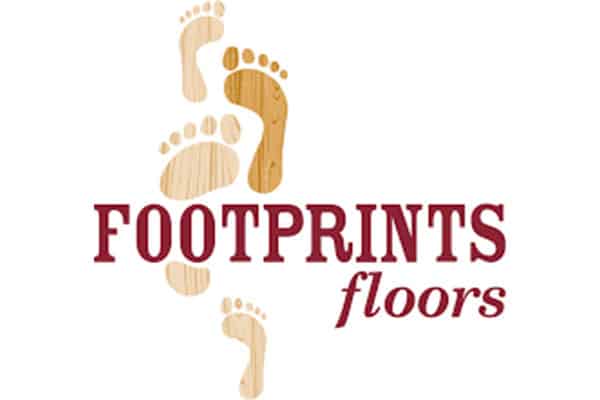
Doubling down on the season that you’re in, which is taking these 1st, 2nd-year franchise owners and doubling down on what works in the business. You’re figuring out what matters to try some results and get you into years 3, 4, and 5. Your business continues to mature. Helping these owners in their first 1, 2, and 3 years of business, what are the key milestones that you’re looking for in that early season? How are you getting them there?
The first milestone is completing training. We have four weeks of training they go through and launch them in a good spot. From there, we’ve invested heavily financially and brought it on staff, heavily in my time in ongoing development. We have pieces of training like three a month. We bring in industry experts and have all kinds of that standard stuff but we’ve been doing business reviews.
For the first six months, they do it monthly. From there on, we do a business review with them annually with me. I go through their P&Ls from 2022 for an hour, pour into it, and see what I see. With 52 of 80, I’ve got 12 left to go. It’s a lot of hours but I love doing it. I love pouring into these guys and gals to help them see.
They’re new. A lot of them never even ran a business before. It’s teaching them the basics of P&Ls. “This is what you should be looking for as far as KPIs go.” We’re looking at estimate cal. That’s overall volume and opportunity. We look at sales numbers and the internal term we use is called the power rating, which is essentially revenue per estimate. We’re looking for $1,000 per estimate or plus is the metric that we use. Our average job size is probably smaller than yours. It’s $40, $200, or something like that.
The last one is gross margin. Are you capturing the revenue after the cost of goods sold? If they hit those three metrics, then everything else takes care of itself. They’re making good money and being efficient with their time, love, and life. If they’re not hitting those metrics, then those are areas of growth and opportunity for us to pour into them. “Have you tried this? Let’s do this. Let’s go through sales training again. Here are the videos that we’ve created. Let’s pair you up with our sales expert and make sure that you understand what you need to be doing.” There’s a lot.
Revenue per customer and gross margin. What was the third one, Bryan?
It’s revenue per estimate, depending on how you define customer but if we’re in a house, then how much are we turning it into? If you go to 10 estimates, did you book $10,000? That’s the question. Whether it was 1 job that was $10, you went 1 for $10, or if you went 10 for $10 and they’re all a $1000. It’s about the revenue side of it. That matters to us.
You can probably see what the average ticket of overall estimates is and then what is the average ticket of the actual sales. That’s an important differentiator there. You can dive into the overall quality of the presentation, which I’m sure you’re inferring from the P&L, and thus your comment about, “Let’s dive into some sales training and figure out how to grow the average ticket of the ones that are closed.” You’re doing that P&L and almost 80 through all of them but what are some themes?
A major theme, which I love seeing that justifies what we’re doing is there’s been a tremendous amount of success. Most of these guys are making good money, more than they’ve ever made in their lives, which I love seeing. That’s the entire reason for doing this. I feel terrible if they were but no, we’ve seen a lot of success. The model works. There’s a lot of happiness and loving what they do. There are some outliers there for sure. Those are people we’re pouring into more and more. Overall, the major theme is tremendous success.
It’s fine-tuning like, “Are you following the sales model? How are you managing your crews? How is getting five-star reviews going for you?” We’re encouraging and pushing them into that. We’re ending each call by creating a to-do list or a tangible list of things they can do starting tomorrow. “Go talk to this person, do this, and sign up for that.” All things that are going to help fix whatever minor deficiencies they might have in their business and continue to grow, get better and advance, drive, goal setting, and all things that business owners should be doing.
They’re getting this opportunity with you. I could only imagine the percentage of franchise organizations that do that individual P&L review and then business consulting with every single franchise owner. That’s impressive, Bryan. I commend you for that. It’s a reflection of the way that you run your organization. Why review is so important? Why is that something that you’re talking about with your franchise partners?
It’s not about me. It’s about them. We’re here to serve them. If you make decisions with that being the central focus, love thy neighbor, “What is the best way to use my time? It’s helping them in this way. It’s pouring into that hopefully helping them do better.” I’ve noticed that a lot of goal setting is a natural tendency for me. That’s ingrained in me and we constantly think about the future in 6, 2, 5, and 10 years. That’s how my brain works. If I’m not goal-setting, I’m not breathing but I’m weird. The vast majority of people are not natural goal-setters. There’s a tendency for them to not think too much about it and for them to go through the motions of the year.
It’s like, “I always got money in my bank account. Things must be going well.” Maybe but they could be going better if you did this and move towards this goal. That’s a lot of what I can do and help as I am a goal-setter and I enjoy doing it. We don’t want to set goals for them. It’s not my business. It’s theirs. It’s coming alongside them, helping them think through their goals and set their goals, and then how can we help them achieve what they’re trying to achieve? Some have lower and higher goals and everything in between. We don’t have any strong opinions about it.

“What do you want to do this year? How are we going to get there?” They’re like, “I might have my two cents.” I’m like, “That’s pretty low goal. You did this last year. You should exceed that. What do you think about this?” It’s relationships, staying in front of them and reminding them that you’re a franchisor, a real person that cares about them. That goes a long way.
Do you ever find that in these conversations, it’s their goals? You might have some opinions here and there but do you ever find that when you’re giving tips and tricks on how to improve the business and the P&L, there’s a little bit of hesitation or some resistance from your franchise partners, or is everybody is like, “You got it, thumbs up.”?
No. I’ve done these business reviews for a couple of years and 60 of them under my belt in 2023. There’s a definite theme that comes out that the more willing, I use that word on purpose, a franchisee is to push into the model, the more likely that they’ll be very successful and make a lot of money. It’s each unwillingness in them, usually fear, time constraints, or effort that leads them to fall short of some of these expectations from the model. Each one of those ends up resulting in a little bit less success.
Here’s an easy one that I see constantly. We teach them and beat it into them through our sales training like, “Spend an hour with your homeowner. We want you to do the estimates inside the home. Write it up right there with the homeowner. We have all of the technology. It’s super easy.” Simply ask for the sale. We’re not slimy or using car salesmen doing these hard closes but say, “How does that sound? Is this something you’d like to do? I can get you on a schedule.” Just that little thing.
We watch sales numbers increase by 150% to 200% and yet many of them don’t feel comfortable doing the estimate in the house because they want to go home, use more time, and be perfect. They don’t feel comfortable asking for the sale because that’s scary. It’s been a long time since we’ve done $20,000 estimates. I don’t remember it being scary way back when. It can be a scary thing. That’s one example of a dozen different things. These little nuanced things in our business model will lead to greater success but then there’s this hesitancy to push into certain things.
Was that the International Franchise Association? For anyone that’s not aware, the IFA is the largest association in franchising. There’s a great amount of knowledge that is exchanged at the events, the big one, the annual conference. I’m there listening in on a breakout session. One of the folks that’s leading the conversation was a Founder and CEO of a very successful franchise organization. I’m talking North of 400 or 500 locations. He is saying that something that they talk about inside their home office or their theme is, “We’re going to bring them along kicking and screaming.” Hit each other in the hallways, they’re kicking and screaming.
It’s ultimately for the organization’s good to ask for the business in person. You are going to have this business model. It’s not true for every business model but for your business, Footprint, it’s important to ask in the presentation. Still, you have a large percentage, maybe not the majority but big enough to be a notation, not asking.
Bringing them along, kicking and screaming. Even against what’s going to make them successful and what’s going to benefit them. You spoke to it. Being an experienced coach, you said, “Some are perfectionists. They want to go back home and do it in the setting where they can make it perfect.” Somebody that’s less detailed and more comfortable with doing it on the fly is going to have no problem asking. It’s like, “Sure, of course. It’s going to get me the business.”
Yet the perfectionist is like, “Hold on. We got to make sure the thing is buttoned up and perfect.” It’s interesting how you not only have to talk to somebody about who they are and what their skills are but then how do you get them to do it? That’s different. How do they understand it, learn it, and do it? Within a franchise company, throw in the independent business owner component, nobody is W-2.
All you can do is lead a horse to water but you can’t make them drink. A lot of our business reviews are showing them mathematically like, “Watch what happens if I increase your sales rate.” I have this huge long spreadsheet that’s got lots of moving parts and it’s pretty slick. The bottom of the spreadsheet shows their potential income and it’s like, “Watch if I increase your sales numbers by 20%. If you start doing the estimates in the house and asking 20%, that’s lower than what we typically see. Your income doubles. You’re not making $90,000 but $180,000. Do you think you should do your estimates in your house?” Some are like, “Yeah.” Some are like, “I don’t know. $90,000, maybe you should start doing it.”
All we can do is show them. They see their peers. The high flyers are making tons of money, winning awards, and all that stuff. They notice those guys in the house ones. That’s just one example. There are other things that we do. I think that you understand what I’m getting at. I don’t like the kicking and screaming because it makes them sound like children. Sometimes you’re like, “Come on, guys.”
Sometimes it can seem so childish that somebody is going that much against what’s going to make them successful. Ultimately, that’s the franchisor-franchisee relationship. Granted no way is that about treating somebody like a child but it is about getting somebody to do something that they may not see for their benefit. That is such a benefit in the franchise model. You have a leadership team that you trust and believe in. They have your back and you partnered with them because of their leadership style.
There are all these options out there in the market and you get to choose which organization you’re going to partner with. A big part of that is culture. In moments like this, how do I expect my franchisor to deal with me or others and situations? Not everything is going to be concern free. We’re going to have moments of growth and leveling up. Growth and leveling up means stepping into your areas of discomfort and making decisions in the unknown. The beautiful thing about the franchise model is you get to do that with other individuals, other business owners, and your home office. On that note, Bryan.
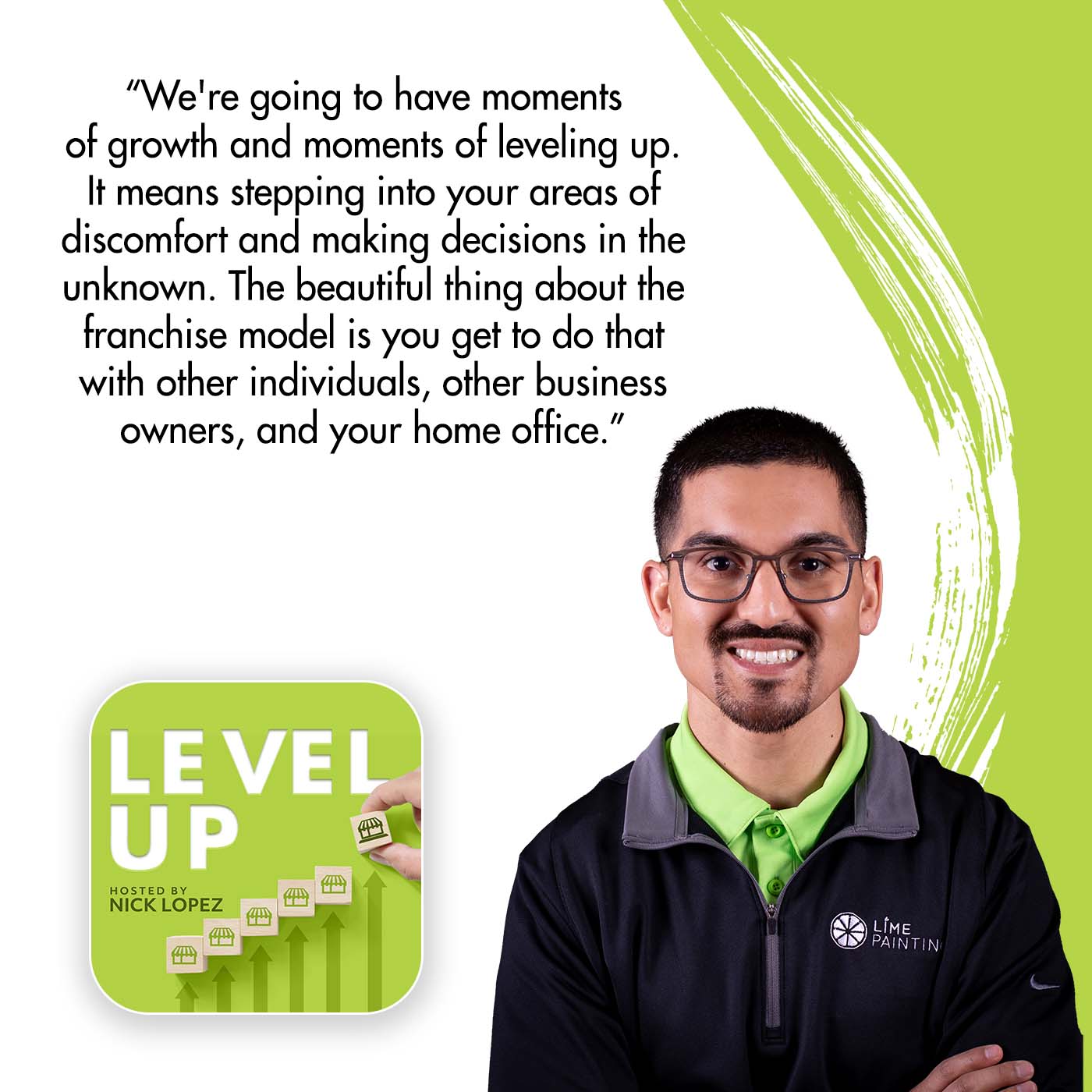
We often use this analogy for the path we’re walking down. I stole it from Pilgrim’s Progress if you’ve ever read that book. It’s an allegory. We’re on this path. What I think franchising is these newbie franchisees that are starting at the beginning of the path and starting to walk. We’re all on the same path. I happened to be farther along than others. “I’m three years down the road.” Even me. I’m a couple of years down the road and I’m on the same path. I started in my garage and installed the floors myself. I’ve done every single aspect of the job. I’ve hired staff. I’m only asking people to walk the same walk I’ve been walking for years.
There’s so much peace that can come from that for a new franchisee to see 80 people in front of them walking the same path and saying the same thing. “Stay on the road. It works. This is the path to good income and a good lifestyle.” At the core of it, that’s what franchising is, setting a path. We have this running joke of everybody wants to create their path. “I’m going to go off here into this forest for some reason.” No. Stay back on the road. We have all of our staff walking along the side of the road, pushing back up on the model. No. Follow the signs. Don’t get off into the forest and the field somewhere. The farther you get off the path, the harder it is for us to get you back on. Stay over here.
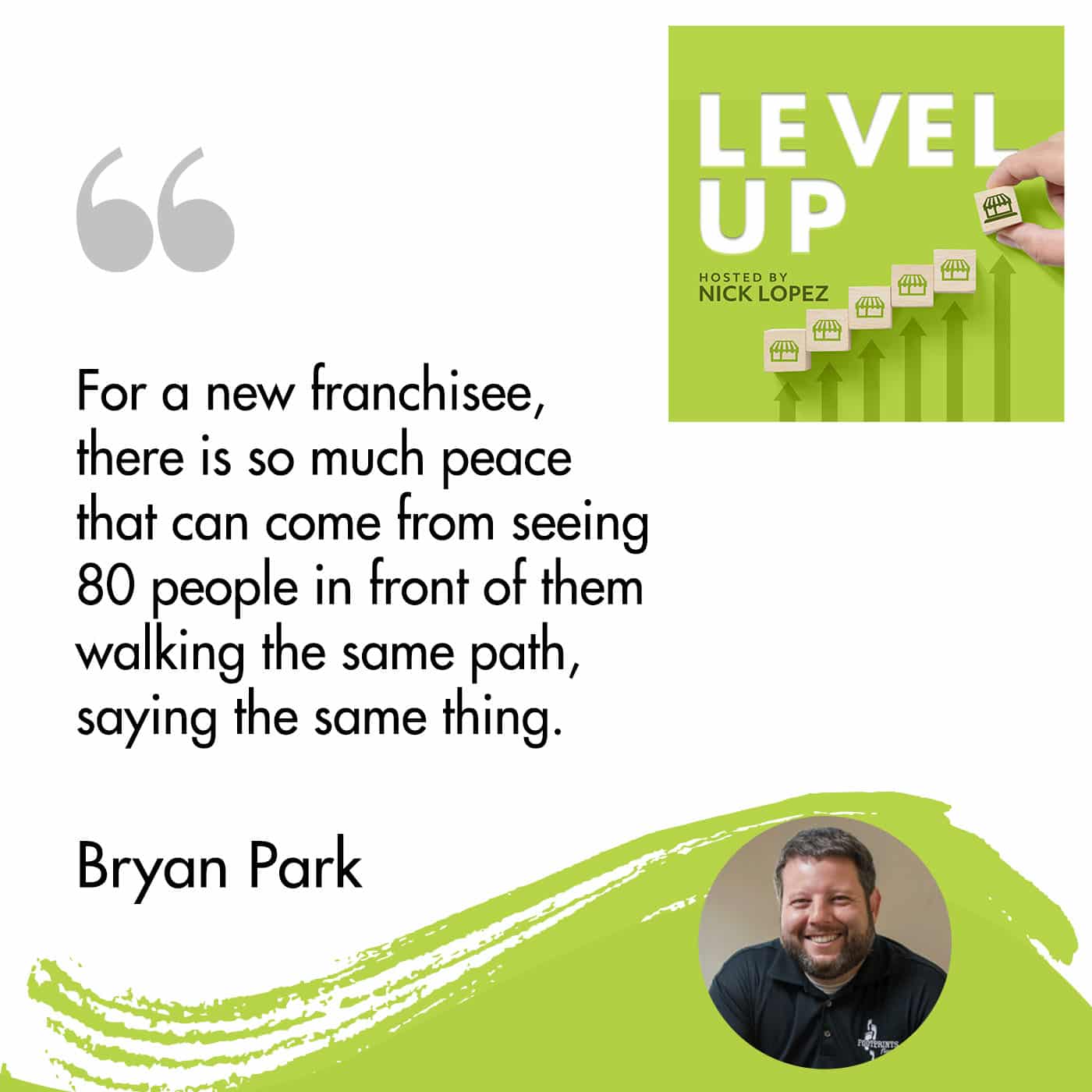
We know countertops and kitchens are like a floor. It’s like putting down a surface but we don’t do that. It’s being silly and extreme there.
We had somebody start getting into fencing. It’s wood fencing. I’m like, “No. We don’t do fencing. We do floors. Stick to the inside of the house, please.”
That’s what strengthens the model and creates brand consistency. The strength of the brand is when I work with somebody from Footprints Floors in Denver, Boise, Idaho, or New Jersey down to Florida, it’s going to be a very similar experience from the culture, values, service offered, and the way in which business is done. That consistency, the stronger that every franchise partner is committed to the same model.
We want to innovate and level up. We want to do it with the same vision and implementation. We’re uniting all of our resources as a franchise organization. If we’re Footprints Floors of John in Spokane and we do things differently, it’s breaking the model and deteriorating what makes the brand great. That consistency and alignment, and everybody is marching on the same path is such an important part of franchising.
To that point, Bryan, I’m curious. How do you work with your franchise partners when you are implementing something new, thinking about it, or shifting the direction of the brand? What does this collaborative process with franchise owners look like for your organization? Every franchise owner is in business for themselves but they’re not by themselves. Everyone’s invested in this asset together. It’s everybody’s business.
Granted, every franchise owner is licensing the brand, systems, and blueprint. That’s the franchisor’s responsibility to steward the quality of the brand and yet you have all these investors that are franchise partners that are owners executing. It’s an interesting dynamic there. For your organization, how do you guys collaborate with the owners in implementing and ultimately changing or evolving the brand over time?
It starts with your perception and treatment of franchise partners. I’ve never seen them as my employees. They are truly my partners. I see the franchisor as the servant. These are our customers in some way. It is tricky because we are responsible for the brand. “You got to do certain things.” I don’t want to create a police state. I want to create a very open environment with our franchisees where they feel safe and heard. They can bring up new ideas.

I am the innovator of our business. That’s how I build. That’s the whole goal-setting thing. I love hearing new ideas. I don’t have any problem telling people when they have a bad idea or if they have a great idea, let’s do it. We’re constantly pushing that way. It starts with the treatment of franchisees and creating a culture of an open forum, being able to talk and communicate access to the decision-makers. Part of that is business review.
A huge thing that we’ve done almost since day one is we created a forum or a Google chat. We have 140 people so a lot of employees and industry experts. They’re all in this chat and there are 200-something comments every day. We have different chats happening. Some are flooring-specific. Some might be more technical. We have one that’s just the franchisees on a chat and there’s 100-something on that one. It’s all day asking questions. I’ll pose questions. I’m on there. I probably answer more on there than anybody.
It might be systems like, “How do we do this? How do we implement that?” It might be them saying, “I ran into these guys in my market. Has anybody ever heard of this company? We should partner with them.” There’s this constant flow of information. We’re tapping into 175 markets of ideas instead of everything having to generate from 1 central point. I love it, 175 different places, all talking. We have over 1,000 people in this business.
All of these different minds, skillsets, and backgrounds are so diverse. Also, school teachers. We have a cosmetic industry like manufacturers, managers, and everything in between you can name. I love the diverse backgrounds that we do have and diverse thoughts. We tap into it. We do an annual convention, which has been huge, bringing together people, and ideas, and seeing each other face to face. I love doing that.
We launched an advisory council made up of franchisees voted on by their peers. We had our first meeting and we’re starting to push into that. That’s a platform or place for ideas to flow up from the franchisees to the franchisor and then vice versa, like a talking ground or a place to sort out what we should be doing and not doing. I want their feedback. I don’t want to do anything that’s going to be detrimental to the overall system. That’s the opposite of what I’m trying to do. I want to make lives easier, not harder.
I never watched the History Channel, not that I have anything against it but I was scanning through the channel and killing some time. I stumbled on this show like the restaurant that Founded America or something like that. I thought, “This seems pretty interesting.” Sure enough, it was. It was hitting on Dairy Queen and how Dairy Queen innovated soft serve ice cream. Up until then, it was frozen ice cream.
At the time, they didn’t have machines to create the soft serve. They struggled with freezers and ice cream in general. The industry was not where it is now, for sure. Dairy Queen, being the innovative company that they were, created all of that. As they started scaling through franchising, their owners wanted to start buttoning down on consistency across the brand. They had this national footprint that was laid but the issue that came up on their plateau was that they had inconsistencies across all of their locations.
Folks would go to a Dairy Queen here and there. It was just whatever menu and maybe a twist on the logo. When they standardized everything, they standardized food and incorporated hamburger and fries, which is nothing like ice cream. They’re not only masked from a franchise perspective nationally serving ice cream but they’re also in the fast food business.
I could relate to running a franchise organization much like yourself, Bryan, where you have the consistencies of the brand and what makes it powerful, yet there is innovation and collaboration from the franchise owners. They have a good beat on what’s going on day in and day out, what’s making them competitive, and what are some new entities in the market that everyone should incorporate into the business so that it makes it easy for everybody.
You guys have created a franchise advisory council. This standardizes the way that franchise owners influence what’s being implemented in the brand and the direction of the brand. What an exciting development within your organization. We implemented our FHC years ago so we’re about the same timeframe. We have been picking up steam and standardizing the cadences for communication. There are some growing pains in it, understanding, “What are the dynamics of decision-making and franchise owners? How do they contribute in the home office?”
At the core of all that is trust and communication and ultimately the customer. It’s something that I’ve been settling on as of late. The home office and the franchise owner are united, engaged, accountable, and working together for the customer. It does a beautiful job of simplifying what we are doing here at the FHC. This is about being competitive in the marketplace and the way that we operate in the marketplace because that’s what we’re doing. We’re competing.
It’s a competitive landscape. How do we differentiate ourselves from the other flooring companies, paint companies, or whatever your industry is? It’s exactly what we do. I’ve been saying for years, “We don’t do anything magical. We install floors.” Customers would ask, “Why should I go with you?” It’s because you get me. It’s this concept of integrity and we’re going to show up. Not all flooring installers are created equal. We’re pushing against that misconception or myth like, “This or that floor guy, this or that painter is all the same.” No. This is not a car getting made with lasers in a factory somewhere. This is humans molding nature in your home and you’re hoping for the best.
Air Force Academy’s slogan, I don’t know if you saw it when you were there for that wrestling tournament, but it’s, “Integrity first, service before self, and excellence in all we do.” That’s been ingrained into me in how I conduct myself and what we pass along to our franchisees. It’s integrity first, which means doing the right thing even when no one’s watching. It’s service before self. It’s putting the needs of your customers and crews before yourselves. It’s excellence in all we do. Work as though you’re working for the Lord alone. If you start with all of that, then everything else takes care of itself.
You’re so right, Bryan. Integrity, service, and excellence, if those three things are done consistently for any organization, you’re going to kick your competitor’s butt all day. The competitors that can do that with you are going to make you better. Those are the peers and the competitive landscape that are going to make you better. You are going to make each other better. It’s hard to consistently deliver integrity, set service, and excellence.
With the organizations that are able to rise and do that across the country in this example, the cream rises to the top. That is a beautiful journey that a franchise organization is aligned with doing. Doing it with integrity, serving one another, and a commitment to excellence to deliver flooring service, a painting service, and do it under that brand.
It’s a fun process. I commend you again for all the things that you’re doing. I love the FHC. Let’s change the subject a little bit and get us some KPIs. What are some Key Performance Indicators in your business that you guys are aligned behind and you know are going to move the dial for the business? Let’s go with individual franchise owners.
Profitability is our number one and then joy, enjoying what they do. That’s a hard metric. You simply ask. You have enough conversations with your franchisees and you figure out if they’re liking life or not. While we would love both to do awesome making tons of money and enjoying it, for the most part, that’s what we see. There are hard days but we come alongside, our mentor and our director of franchise support who answers to me. He’s the guy in charge of the development of all these franchisees nationally.
As a previous pastor, that’s what he did in his life. He was an Air Force, pastor, and a franchisor. He has this heart for people, hearing them and listening to where they’re at. It’s a spiritual battle running a business as much as anything. While there’s not a metric there, it’s constant interaction with our franchisees to make sure they’re doing well emotionally and spiritually. Also, bottom line revenue. There’s this false thinking of top-line revenue, which is generally what franchisors care about.
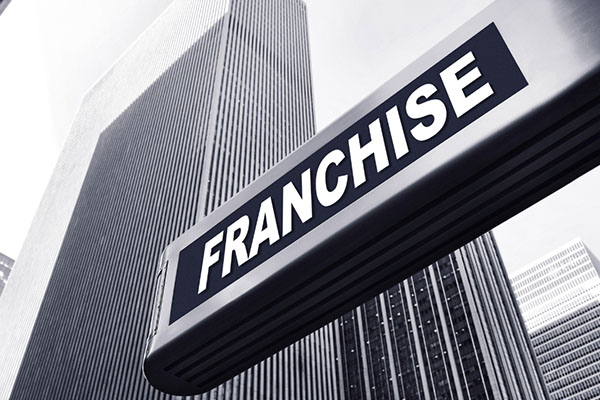
Our royalties are attached to the top line. We’ve done everything we can to avoid that line of thinking. We care about the profitability of the franchisee. If he’s making good money, then we’re fine. Franchisees have high top-line gross revenues but then aren’t making good money. Those are the guys we need to come alongside and help remedy that issue as a gross margin issue or they undercharging their customer or overpaying their crews, materials, or whatever it is.
I would say those are our two main KPIs. In looking at it, we do reviews and surveys with homeowners and then we’re watching five-star reviews on the internet, overall reputation in a given market. Those are important. Although, our guys knock it out of the park so it’s not a huge concern. We have tons of five stars out there. It’s something to be monitoring for sure.
Getting great five-star reviews is key and growing that local brand halo. Everyone goes online to get confidence in doing business with anybody, whether it’s food, a service you’re going to get, or an auto place you’re going to check out a vehicle. The business is done online. Those reviews are pivotal. One thing that we’ve learned, which is an interesting little nugget here, is that when you get to review on the job site before the job is closed out, your ability to get reviews goes through the roof. As soon as you leave and follow up with communications trying to get the review, it doesn’t matter how happy they were. They’re five-star and thumbs up all day long.
We tell them, “At the end of the job, make it awkward. Say, ‘Do you feel like we did five-star service at your house?’” Pretty much everybody’s like, “Yeah. You guys were great.” “Would you mind giving me a five-star now? I’ll send you the link.” You look at them and they’re like, “I thought I was going to be able to procrastinate and then not do this.” You make it awkward and they do it. That’s an example of we’re asking franchisees, “Push into this awkward and do it because you’re going to get a lot of five-star reviews if you do it.” There’s pushback out of fear. I don’t want to do that. That’s weird. That’s how you get reviews. You make it awkward and people would do it.
Whether it’s asking for the sale or the review, make it awkward for your best performance.
It’s internal fear. The customers are always fine. I’ve been on that side. How many times have we been asked for reviews as we’re going about as consumers? You’re at the car dealership. Everywhere, we get constantly asked. “Sure, I’ll give it to you. It’s not weird for me as the consumer.” Our homeowners are the same way. It’s fear in the franchisee, not fear in the homeowner.
What a powerful resource to lean on as a franchise owner. You’re not alone. You’re in business with your peers. Your peers are also telling you to get the review and ask for the sale. Your coaches and home office are doing the same thing. Bryan, you shared many nuggets here and so much gold that you humbly deliver. I can see that if I’m a potential franchise owner, why I’m wanting to team up with your organization. You do business the right way. It’s clear that your franchise owners are front and center. You’re serving them with excellence and integrity.
Bryan, I can talk to you for so long. That’s not possible now but we need to get together. Most certainly, when in each other’s backyard so you’ll be hearing from me, bugging you. Maybe we can get together for a game over at Ball Arena or something. If anyone is interested in getting in touch with you to learn more, how can they do that?
If you want to learn more about franchising, it’s www.FootprintsFloors.com. We have a little button at the top. It’s www.FootprintsFranchise.com. If you’d like to learn more, we have tons of information and marketing material out there. Also, webinars and podcasts. You name it and it’s out there. There’s no shortage. Thank you so much, Nick. This has been awesome.
Footprints Floors, please check them out online. As Bryan said, you can find them anywhere online. That has some tremendous content. Subscribe to the show. It’s how we’re able to continue to grow and get amazing guests like Bryan. Contribute to the convo here, drop some comments, and let us know your thoughts. I leveled up. I’m sure you did as well. Bryan, thanks again for being on the show.
It’s been a pleasure. Thanks, Nick.
As always, level up.
Important Links
- Footprints Floors
- www.FootprintsFranchise.com
- Pilgrim’s Progress
- http://LinkedIn.com/in/Bryan-Prk-50b38987
About Bryan Park
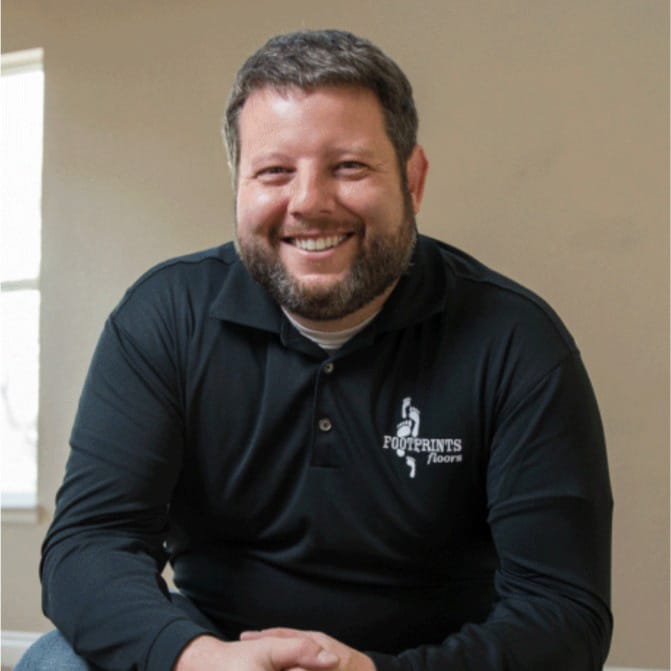
Bryan Park is the Founder and CEO of Footprints floors a home flooring restoration and installation company. He served in the United States Air Force Academy in Colorado Springs and spent time serving the country in Omaha, Nebraska, before settling in Littleton, Colorado with his wife Kelli and three daughters. As new homeowners with three large dogs, they found it challenging to find high-quality, affordable home flooring restoration and installation options.
Disappointed with the lack of efficiency and solid business practices in the retail flooring industry, Bryan took it upon himself to make a change. His commitment to integrity, duty, and leadership is deeply rooted in his service as a veteran, and he has applied these values to his company to provide the best service possible to his clients.
